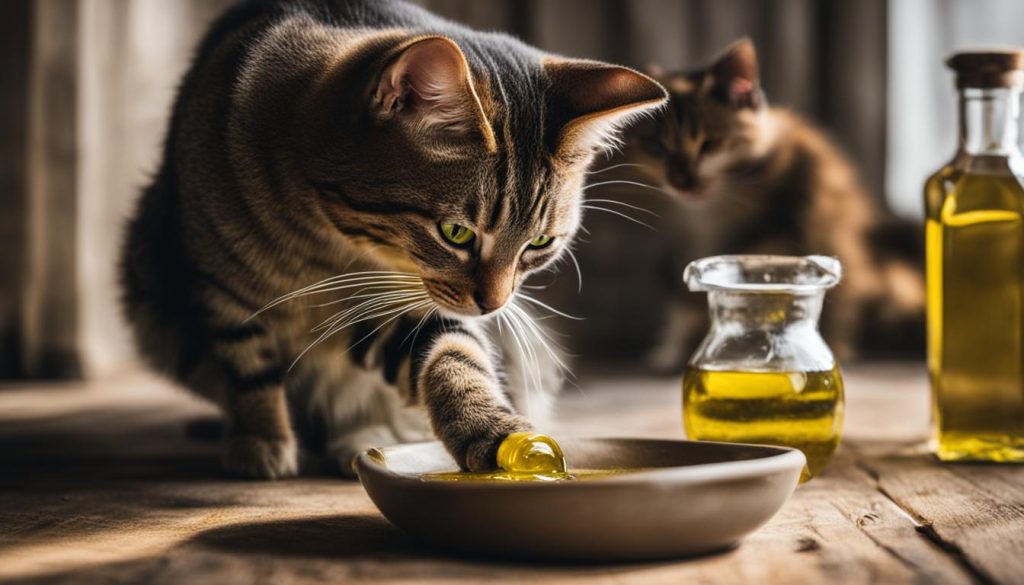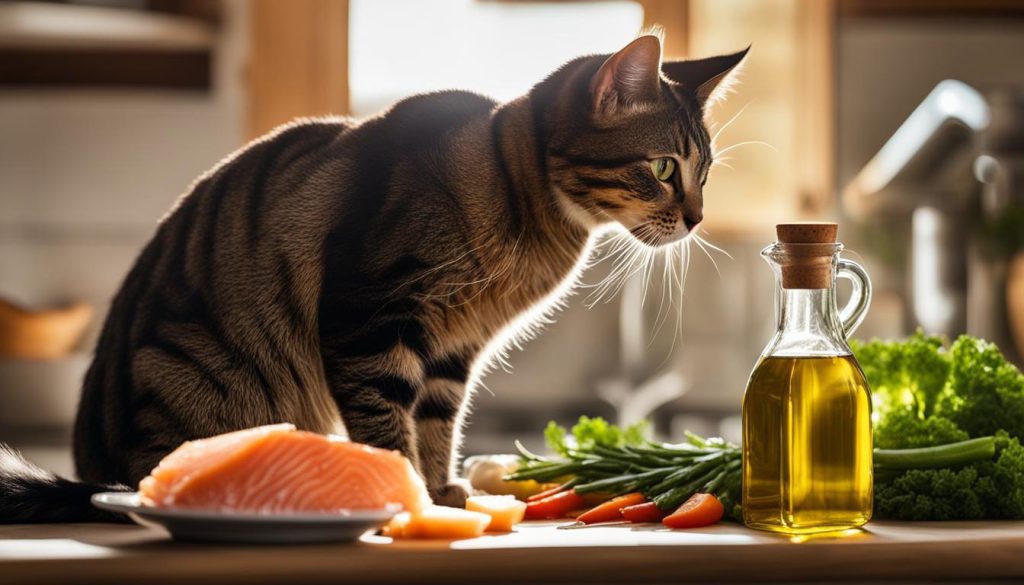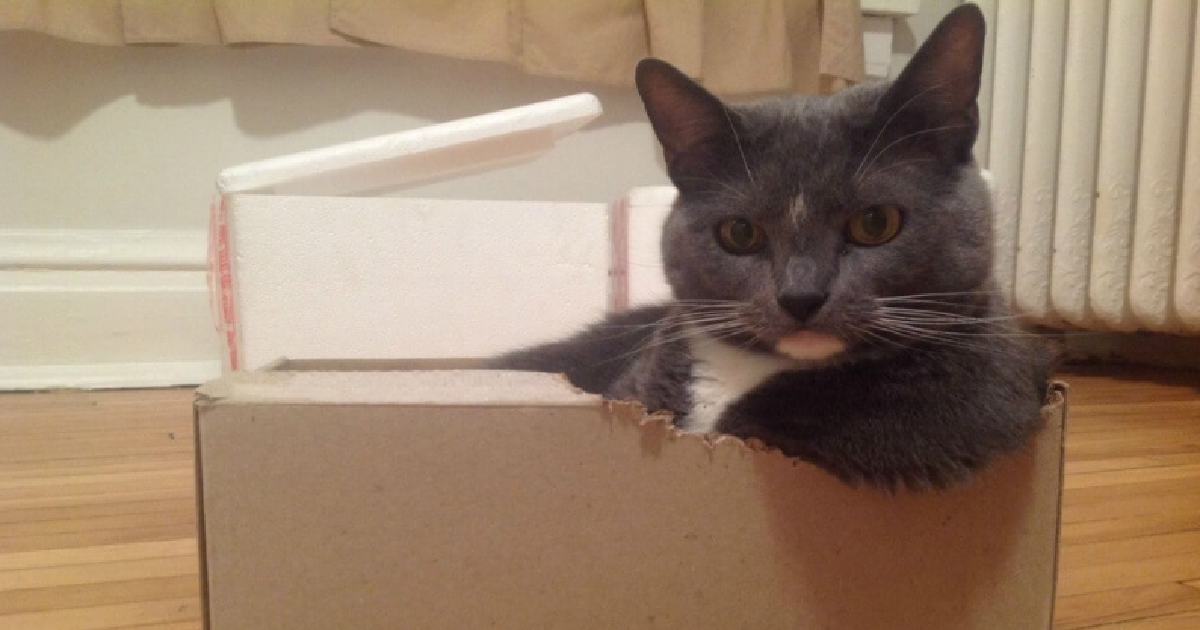Hello, cat lovers! Have you ever wondered if it’s safe for your feline friend to indulge in a little olive oil? While it’s tempting to share our favorite foods with our pets, it’s crucial to remember that not everything we enjoy is suitable for their delicate digestive systems.
In this article, we’ll explore the topic of cats and olive oil, discussing whether olive oil is safe for cats, its potential benefits, and how to incorporate it into their diet without jeopardizing their health. Let’s dive in!
Can Cats Eat Olive Oil? Yes, but generally not recommended.
- Olive oil can be safe for cats in small amounts, but overfeeding can lead to weight gain and stomach upsets.
- Some cats may be allergic to olive oil, so it’s important to watch for any adverse reactions after consumption.
- Olive oil is primarily used to relieve digestive and bowel issues, reduce hairballs, and resolve skin problems in cats.
- Cats require essential fatty acids, so olive oil should not replace a balanced diet that includes high-protein wet food.
- Consult with a veterinarian before adding olive oil or any dietary supplements to your cat’s diet.
Is Olive Oil Safe for Cats?
Olive oil is safe for cats to consume in small portions. However, it’s important to note that cats should eat it sparingly as it is high in fat. Feeding cats more than a small amount of olive oil can lead to a calorie overload and stomach upsets. Minimally processed extra virgin olive oil is safer for cats than refined variants. Cats with weak dispositions or specific health conditions should consult a vet before adding olive oil to their diet.
If you’re considering incorporating olive oil into your cat’s diet, it’s essential to understand the potential implications. While olive oil can provide some health benefits, it should not be considered a replacement for a veterinarian-approved diet.
Feeding your cat too much olive oil can contribute to weight gain or even lead to pancreatitis. It’s crucial to maintain a balanced diet and consult with your veterinarian regarding the appropriate amount of olive oil for your furry friend.
When introducing olive oil to your cat, start with a conservative amount and monitor how they respond. Watch for any signs of digestive upset or discomfort. If your cat has a sensitive stomach or any underlying health issues, it’s vital to seek guidance from a veterinarian before making any dietary changes.
Can Cats Be Allergic to Olive Oil?
Although rare, some cats can have an allergic reaction to the unique compounds in olives or olive oil. If your cat experiences an allergic reaction, it’s important to identify the symptoms and take appropriate action. Allergic reactions can vary from mild to severe and may include:
- Red and itchy eyes
- Patchy skin and hair loss
- Vomiting and diarrhea
- Retching or inappetence
- Difficulty breathing
- Bloating
If you notice any of these symptoms in your cat after consuming olive oil, it’s crucial to stop giving it to them. Consult your veterinarian for further guidance and alternative options for addressing your cat’s dietary needs.

The Health Benefits of Olive Oil for Cats
Olive oil is often considered one of the best oils for cats due to its low content of saturated fats. It provides various health benefits that can contribute to a cat’s overall well-being. Here are some of the benefits that olive oil offers for cats:
Relieves Digestive and Bowel Issues
Olive oil can help alleviate digestive problems in cats, such as constipation or irregular bowel movements. Its lubricating properties can promote smoother digestion and aid in moving the stool through the intestines. Additionally, olive oil can help relieve stomach discomfort and improve overall gastrointestinal health in cats.
Reduces Hairballs
Hairballs are a common issue for cats, especially those with long hair or excessive grooming habits. Olive oil can act as a natural lubricant, making it easier for hairballs to pass through the digestive system. By adding a small amount of olive oil to a cat’s food, owners can reduce the frequency and intensity of hairballs in their feline companions.

Resolves Skin Problems
Cats can experience various skin conditions, including dry skin, itching, and dandruff. Olive oil’s moisturizing properties can help nourish and hydrate the skin, providing relief from these issues. Applying a small amount of olive oil to a cat’s fur or incorporating it into their diet can contribute to healthier skin and a shinier coat.
Potential Benefits for Feline Diabetes and Heart Disease
While not yet scientifically proven, some cat owners have reported using olive oil as part of a management plan for feline diabetes and heart disease. The monounsaturated fats in olive oil may have potential benefits for these conditions; however, it is essential to consult a veterinarian before incorporating olive oil into a cat’s diet as a treatment method.
It’s important to note that olive oil should be used in moderation and as part of a well-balanced diet for cats. It should not replace proper veterinary care or substitute high-quality cat food. If you’re considering adding olive oil to your cat’s diet, consult with your veterinarian to ensure it is appropriate for your cat’s specific health needs.
Dietary Hacks for Keeping Cats Healthy
While olive oil can be beneficial for some cats, it should not be the sole source of dietary fat. Cats require omega-6 and omega-3 fatty acids, which are essential nutrients that they cannot produce on their own.
Commercial cat foods are formulated to contain these essential fatty acids, but if additional fat is needed, fish oil is typically recommended. Fish oil supplements can provide cats with the necessary omega-3 fatty acids while also promoting a healthy coat and skin.
It’s important to provide cats with a balanced diet that includes high-protein wet food and avoids dry food with high carbohydrate content. A diet rich in protein helps support muscle growth and maintenance, while minimizing carbohydrates can help prevent obesity and maintain healthy blood sugar levels.
Other alternatives to olive oil in a cat’s diet include krill oil, avocado oil, and sunflower oil. These oils can provide essential fatty acids and add variety to a cat’s diet. However, it’s important to introduce new foods gradually and monitor for any signs of digestive upset or allergies.
Incorporating these dietary hacks into your cat’s routine can contribute to their overall health and well-being. Remember to consult with a veterinarian before making any significant changes to your cat’s diet or introducing new foods.
Conclusion
Olive oil can provide some benefits for cats, such as relieving digestive and bowel issues, reducing hairballs, and resolving skin problems. However, it’s important to use olive oil in moderation and as part of a balanced diet for cats. While it can be a helpful supplement, it should not be relied upon as a standalone treatment for any illness or health condition.
If you are considering adding olive oil to your cat’s diet, it is crucial to consult with a veterinarian first, especially if your cat has any existing health conditions or concerns. A veterinarian can provide personalized advice and determine the appropriate amount of olive oil to help support your cat’s specific needs.
Remember, while olive oil is generally safe for cats, it has its limitations. Overfeeding can lead to weight gain and stomach upsets, and some cats may be allergic to olive oil. To ensure your cat’s safety and well-being, always use olive oil safely and responsibly by following the guidance of a veterinary professional.
FAQ
Can cats eat olive oil?
Yes, cats can eat olive oil in small portions. However, it should not replace veterinary medicines or proper cat food.
Is olive oil safe for cats?
Olive oil is safe for cats to consume in small portions. However, overfeeding can lead to weight gain and stomach upsets. Cats with specific health conditions should consult a vet before adding olive oil to their diet.
Can cats be allergic to olive oil?
Although rare, some cats can have an allergic reaction to olives or olive oil. If you notice symptoms such as red eyes, patchy skin, vomiting, or difficulty breathing after your cat consumes olive oil, stop giving it to them.
What are the health benefits of olive oil for cats?
Olive oil may occasionally help cats with gastrointestinal and skin issues due to its antioxidants and healthy monounsaturated fats. However, it should not be relied upon as a standalone treatment for any illness.
Can I use olive oil in my cat’s diet?
Olive oil can be used in a cat’s diet to relieve digestive and bowel issues, reduce hairballs, and resolve skin problems. However, it should be used in moderation and as part of a balanced diet. Alternatives to olive oil include krill oil, avocado oil, and sunflower oil.
Can cats eat other types of oil?
While olive oil can be beneficial for some cats, it should not be the sole source of dietary fat. Cats require omega-6 and omega-3 fatty acids, which are essential nutrients. If additional fat is needed, fish oil is typically recommended.
What are the limitations of using olive oil for cats?
Olive oil should not be overfed to cats as it can lead to weight gain and stomach upsets. It should also not replace essential nutrients that cats need from their diet.
How can I use olive oil safely for my cat?
Use olive oil sparingly and consult a vet if your cat has any specific health conditions. It should never replace proper veterinary care and a balanced diet.






